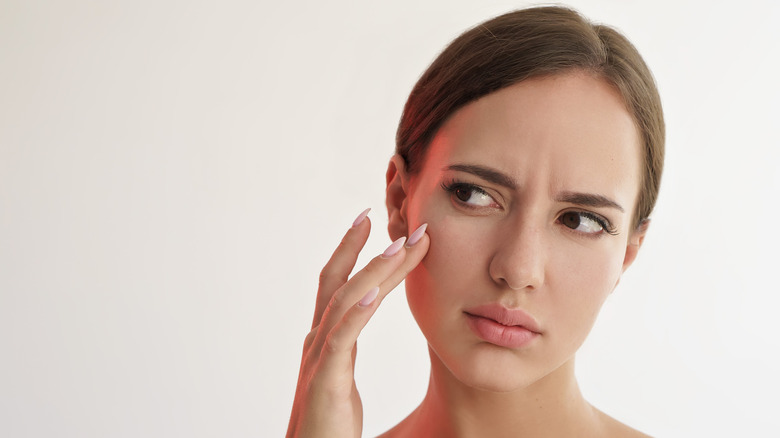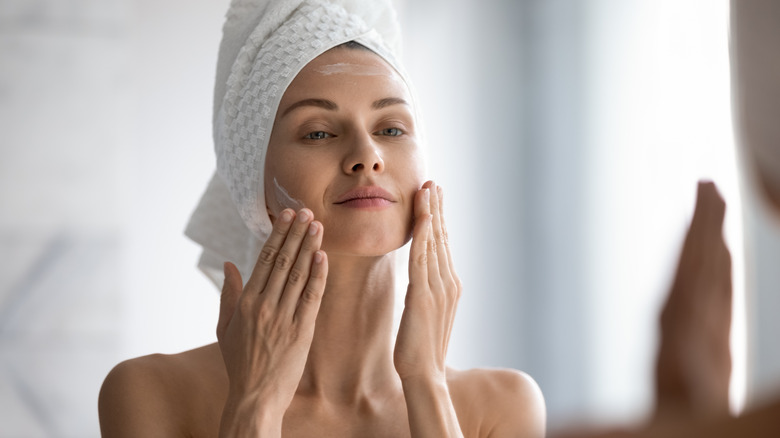Myths You Need To Stop Believing About Oily Skin
If you've ever thought that eating fatty foods makes your skin oily, that's not entirely true. According to WebMD, essential fatty acids like omega-3 and omega-6 help build the natural oil barrier in your skin. This is super important if you want your skin to stay hydrated and plump. Medical News Today recommends eating healthy fats like salmon, walnuts, almonds, sunflower seeds, flax seeds, soy, avocados, olive oil, and dark chocolate.
On the other hand, eating too much salt and sugar can make your skin oily. Byrdie lists these as well as refined carbs, red meat, alcohol, peanut butter, fried food, and meat substitutes as foods that can lead to oily skin.
There are also several myths about oily skin and skincare floating around that are just false. According to The Healthy, skipping moisturizer will make oily skin worse, and sunscreen shouldn't be ditched, either. In addition, using alcohol-based products only tells your body to produce more oil, and using oil-based products will clog your pores. If you've considered exfoliating daily, all that's going to do is make your skin irritated. The simple fix is to opt for products specifically made for oily skin, and you'll be good to go.
How to control oily skin
According to Prevention, one of the first things you can do to control oily skin is read the labels on skincare products. Look for labels with terms like "non-comedogenic" and "non-acnegenic" or phrases like "won't clog pores" or "won't cause breakouts". Also look for ingredients such as salicylic acid, benzoyl peroxide, niacinamide, zinc, retinoids, and sulfur that will help your skin produce oil at a more normal rate. In terms of cleanser, opt for a more gentle formula instead of harsher, more aggressive face washes. Once you find the right cleanser, only use it once in the morning and once again before bed so that your skin doesn't dry out and make more oil. You can also use it after working out.
If you want to use a toner, Prevention says to go with micellar water with both astringent and moisturizing ingredients, which will both mattify and protect your skin. Also, limit exfoliation to once or twice a week. As previously stated, avoid skipping moisturizer and sunscreen. If the thought of either of those is really irking you, Prevention recommends finding light, oil-free moisturizer and using a loose mineral powder sunscreen. You may also want to trade in liquid makeup for powders.


